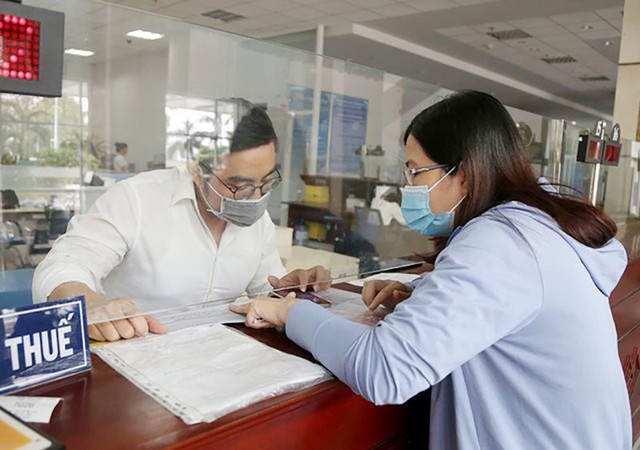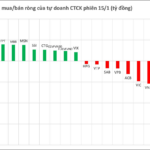
Decreasing VAT is considered a method of stimulating consumption and promoting investment. Source: Finance and Monetary Magazine.
Ensuring Unity and Stability
The government has just issued Resolution No. 49 dated April 17, 2024, on the specialized meeting on law-making in April 2024.
At the meeting, the government discussed and gave their opinions on the draft Law on Value-Added Tax (VAT) Amendment. This draft Law is complicated, difficult, has a wide range of application subjects and regulatory scope, and directly affects the rights and benefits of organizations, individuals, citizens, and enterprises (businesses, enterprises).
The government highly appreciates the Ministry of Finance for preparing and submitting to the government the Draft Law on VAT (Amendment), and for other relevant ministries and departments actively contributing their opinions and completing the draft Law with a high sense of responsibility.
The government agrees that it is necessary to urgently develop and improve the draft Law on VAT (Amendment) in order to fully institutionalize the Party’s guidelines and policies on legal framework completion, unity, and stability of VAT policies, ensuring consistency with the practical requirements and removing any difficulties in the implementation of the current VAT Law. The content of the draft Law basically conforms with policies as mentioned in the proposal to develop the Law on VAT (Amendment) approved by the government in Resolution No. 115 dated July 28, 2023, on the specialized meeting on law-making in July 2023.
The government assigns the Ministry of Finance as the leading agency to coordinate with related ministries and departments to research, fully incorporate opinions from government members and those presented at the government meeting; intensify consultation with experts, scientists, associations, businesses, and affected subjects to complete the draft Law.
In which, it is necessary to fully institutionalize the Party’s guidelines and policies, the State’s policies on the perfection of VAT policies so that they suit Vietnam’s reality and international practices, ensuring transparency, harmonizing the interests of the government with those of the people and businesses; encouraging domestic production and export of goods and services, and promoting 3 main drivers contributing to economic growth: consumption, investment, and export. At the same time, it is essential to comprehensively and thoroughly review and supplement all legal documents related to the content of the draft Law, promptly detect and propose solutions in cases where there are any contradictory, conflicting, and overlapping regulations between the current laws and the proposed amendments and supplements in the draft Law, ensuring the consistency and unification of the legal system; explaining in detail the amendments and supplements to each regulation in the draft Law, clearly stating the inherited content of the current VAT Law, the new amended and supplemented content in the draft Law, ensuring the requirements of decentralization, delegation of authority, and administrative procedure reform.
Studying, reviewing and codifying issues that have been applied stably, consistently, and suitably in line with the actual situation and requirements, in the case of issues that are not yet highly stable or that need to be adjusted in the process of implementation to suit the practical and socio-economic development requirements of the country, it is necessary to make general provisions and assign competent agencies to issue detailed regulations to ensure flexibility and proactive adjustment when needed, such as: regulating the threshold of sales revenue of goods and services not subject to VAT of households and individual businesses; regulating the value limit of non-cash payment vouchers for goods and services purchased per transaction, etc.
Thoroughly Reviewing Regulations on Cases and Conditions for VAT Refund
Regarding the regulation of subjects not subject to VAT, the Ministry of Finance shall study and incorporate the opinions of government members, comprehensively review all goods, services, or goods/service groups not subject to VAT to ensure consistency with the regulations of specialized laws in each field; if necessary, some types of goods and services not subject to VAT can be considered and added to meet practical requirements and ensure the nature of the goods and services not subject to VAT.
Regarding the regulation of export services subject to 0% tax rate, the Ministry of Finance shall continue to refer to international experience, evaluate the implementation, and study to establish criteria, principles of classification, and identification of export services as a basis for specifying cases of export services eligible for the 0% tax rate, ensuring fairness and suitability with the nature of export services, and simultaneously harmonizing the requirements of state management and the interests of businesses in the export sector.
Regarding the regulation of VAT refunds, the Ministry of Finance shall thoroughly review the regulations on cases and conditions for VAT refunds, ensure reasonableness, feasibility, publicity, transparency, and facilitation for people and businesses; study the regulation on VAT refunds for cases of business ownership transfer, business conversion, merger, consolidation, division, separation, or termination of operations to ensure feasibility; provide specific and appropriate regulations on the procedures, formalities, and responsibilities of tax authorities, tax officials, and related agencies, organizations, and individuals, ensuring consistency with the regulations of the law on tax management.
The Ministry of Finance shall preside over and coordinate with related ministries and agencies to urgently study and incorporate the opinions of government members, revise and complete the draft Law on VAT (Amendment) in accordance with the Law on Issuance of Normative Legal Documents; and report to the Prime Minister before submitting it to the National Assembly at the 7th Session of the 15th National Assembly.










